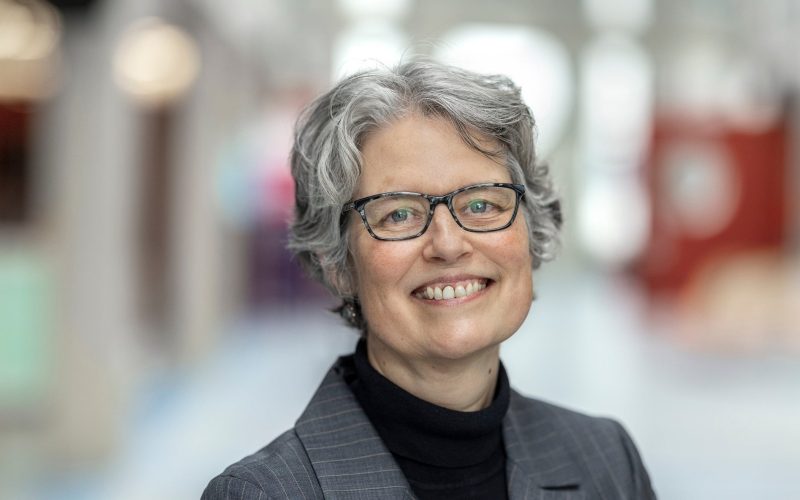Translational infectious diseases investigator prof. Janneke van de Wijgert (Julius Center) has been appointed Chief Science Officer (CSO) Infectious Diseases at National Institute for Public Health and the Environment (RIVM) as of 1 March 2020. She will fulfill this part-time position in addition to her academic duties as a scientific researcher and professor of epidemiology of infectious and immune-mediated diseases at UMC Utrecht.
In her role as CSO, she will be primarily concerned with the Strategic Program RIVM (SPR) for research, innovation and knowledge development, together with two other CSOs Karin Proper and Cassee Flemming. In the SPR programs, the RIVM looks ahead with topics that deserve extra attention because they may affect public health and the living environment in the future. The new SPR of 2023-2026 will also pay significant attention to scientific innovation.
Janneke van de Wijgert studied medical biology and medicine at Utrecht University and subsequently received her PhD in epidemiology from the University of California, Berkeley (U.S.A.). Janneke started her career in Zimbabwe, through the University of California. There she was first a PhD candidate and later program director of a bilateral HIV research program. She then became director of a research program at the Population Council in New York. The main goal here was to develop HIV prevention tools for women. In 2003 she returned to the Netherlands, but continued her international infectious diseases research at Amsterdam UMC. In 2012, she became a professor at the Institute of Infection and Global Health at the University of Liverpool (U.K.). In 2017, she returned to the Netherlands as professor of epidemiology of infectious and immune-mediated diseases at the Julius Center for Health Sciences and Primary Care of UMC Utrecht. To better translate her work into clinical practice, Janneke recently completed the SUMMA medical school in Utrecht in addition to her work as a professor.
Janneke on her ambitions at the RIVM: “During the COVID-19 epidemic, we experienced firsthand that infectious diseases will continue to threaten mankind. In addition, microorganisms are involved in causing chronic diseases far more often than previously thought. Molecular tools such as sequencing have provided a tremendous amount of new knowledge, but these tools and knowledge are still, in my opinion, underutilized in practice. I hope to be able to change that through my role as CSO at RIVM.”
Janneke has extensive experience in infection-related clinical epidemiological research, public health research, product development, and laboratory research in several countries in Europe, America, Africa and Asia. In order to translate microbiome knowledge into clinical and public health applications, she has focused on integrating “omics” and other complex biological data into epidemiological models. During the COVID-19 epidemic, she has worked extensively with eHealth applications, including as a member of the Guidance Committee on Digital Support Fighting COVID-19 that advised the Dutch Ministry of Health. She supervises several PhD students and others, is a popular advisor, speaker and peer reviewer, and has published nearly 200 articles.
